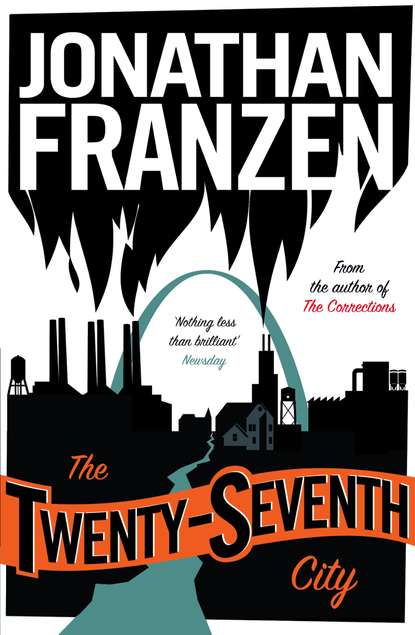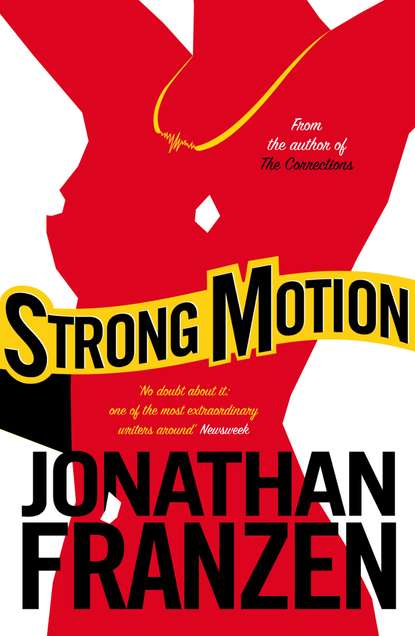
Полная версия
The Twenty-Seventh City
He moved to a front window. Luisa was walking up the driveway with a female friend. Singh entered the nearest spare bedroom, pushed his shoulder bag under the bed, and slid in after it, stilling the dust ruffle just as the girls entered the kitchen below him. He switched channels on his receiver and listened to their movements. Without speaking, they were opening the refrigerator and cabinets, pouring liquids into glasses and handling plastic bags. “Don’t eat those,” Luisa said.
“Why not?”
“My mother notices things.”
“What about these?”
“We’d better not.”
They came upstairs, passed the spare bedroom, and settled in Luisa’s room. Singh lay very still. Three hours later the girls tired of television and went outside with binoculars. Back at the front window, Singh watched them until they were a block away. Then he returned to the basement and came up the outside stairs jotting on his meter-reader’s pad.
In his second apartment, in Brentwood, he developed and printed the film. He stayed inside this apartment for three nights and two days, reading the documents and working through some of the hundred-odd hours of Probst conversations recorded thus far. He warmed up frozen preprepared dinners. He drank tap water and took occasional naps.
When Luisa went out on Friday night he was waiting on Lockwood Avenue in the green two-door LeSabre he’d leased two months ago. To himself, willfully, he gave the name its French pronunciation: LeSob. Luisa picked up four friends from four houses and drove to Forest Park, where they sat on—and rolled down, and scampered up, and trampled the grass of—a hill called Art. Art Hill. The museum overlooked it. When darkness fell, the youths drove ten miles southwest to a miniature golf course on Highway 366 called Mini-Links. Singh parked the LeSob across the road and studied the youths with his binoculars as they knocked colored balls through the base of a totem pole. The faces of the two boys were as soft and downy as those of the three girls. All of them giggled and swaggered in that happy ascendancy, repellent in any land, of teens on their turf.
The next night, Saturday, Luisa and her school-skipping friend Stacy shared marijuana in a dark park and went to a soft-core pornographic movie, the pleasures of which Singh opted to forgo. On Sunday morning Luisa and a different girl loaded birdwatching equipment into the BMW and drove west. Singh followed no farther than the county limits. He’d seen enough.
On the no man’s land bounded by the sinuous freeway access ramps of East St. Louis, Illinois, stood the storage warehouse in which Singh had a loft, his third and favorite apartment. Princess Asha had found it for him—the building numbered among the Hammaker Corporation’s real-estate holdings—and she had paid for the green carpeting in the three rooms, for the kitchen appliances and for the shower added to the bathroom. The loft had no windows, only skylights of frosted glass. The doors were made of steel. The walls were eleven feet high, fireproof and soundproof. Locked in the innermost room, Singh could be anywhere on earth. In other words, not in St. Louis. Hence the attraction of the place.
A dim shadow of a pigeon fell on the skylight, and a second shadow joined it. Singh opened the Probst file, which lay near him on the floor. All week Jammu had been calling him, pressuring him to set in motion a plan to bring Probst into her camp. She was in a terrible hurry. Already, with the help of the mayor and a corrupted alderman, she was designing changes in the city tax laws, changes which the city could not afford to enact unless, in the meantime, some of the county’s wealth and population had been lured east again. But the county guarded its resources jealously. Nothing short of reunification with the city could induce it to help the city out. And since voters in the county were adamantly opposed to any form of cooperation, Singh and Jammu agreed that the only way to catalyze a reunification was to focus on the private individuals who did the shaping of policy in the region, who determined the location and tenor of investment. No more than a dozen catalysts were needed, according to Jammu, if they could all be made to act in unwitting concert. And if her research was to be trusted, she’d identified all twelve. Not surprisingly, all were male, all attended Municipal Growth meetings, and most were chief executives with a strong hold on their stockholders. These were the men she “had to have.”
What she would do when she “had” them, when she had cured the city’s ills and risen above her role in the police department to become the Madam of the Mound City, she wouldn’t say. Right now she was concerned only with the means.
Fighting her enemies in Bombay and furthering the interests of her relatives, Jammu had developed the idea of a “State” in which a subject’s everyday consciousness became severely limited. The mildest version of the State, the one most readily managed in Bombay, exploited income-tax anxiety. To the lives of dozens of citizens whose thinking she wished to alter, Jammu had had the Bureau of Revenue bring horribly protracted tax audits. And when the subject had reached a state in which he lived and breathed and dreamed only taxes, she’d move in for the kill. She’d ask a favor the subject would ordinarily never dream of granting, force a blunder the subject six months earlier would not have committed, elicit an investment the subject should have had a hundred reasons not to make … The method couldn’t work miracles, of course. Jammu needed some sort of leverage initially. But often the leverage consisted of little more than the subject’s susceptibility to her charm.
The State had two advantages over more conventional forms of coercion. First, it was oblique. It arose in a quarter of the subject’s life unrelated to Jammu, to the police, and, often, to the public sphere in general. Second, it was flexible. Any situation could be developed, any weakness on the subject’s part. Jammu had transformed the dangerous Jehangir Kumar, a man who liked to drink, into an incorrigible alcoholic. When Mr. Vashni Lai, a man with recurring difficulties with his underpaid welders in Poona, had attempted to have Jammu unseated as commissioner, she’d given him a labor crisis, a bloody uprising which her own forces were called in to help quell. She’d taken liberals and made them guilt-stricken, taken bigots and turned them paranoid. She’d preyed on the worst fears of energetic businessmen by preventing them from sleeping, and on the gluttonous tendencies of one of her rival inspectors by sending him a zealous Bengali chef who cooked up a gallbladder operation and an early retirement. Singh personally had entered the life of a philanderer, a Surat millionaire who died not long after, and rendered him impotent in the service of Jammu’s Project Poori.
Given the interchangeability of corporate executives, Jammu insisted that her subjects in St. Louis remain functional. They had to stay in power, but with their faculties impaired. And it was here—looking for a path to the State, for a means of impairment – that Singh ran into the problem of Martin Probst.
Probst had no weaknesses.
He was viceless, honest, capable, and calm to the point of complacency. For a building contractor, his business record was unbelievably spotless. He bid only on projects for which there was a clear-cut need. He hired independent consultants to review his work. Every July he sent his employees an itemized accounting of company expenditures. The only enemies he had today were the labor unions he’d thwarted back in 1062—and the unions were no longer a factor in St. Louis politics.
Probst’s home life also seemed to be in order. Singh had overheard a few domestic tiffs, but they were nothing more than weeds, shallow-rooted, sprouting from seams in solid pavement. The tranquil image of Probst’s family was, in fact, what St. Louis seemed to admire most about him. Singh had gleaned an assortment of citations from the library of tapes that R. Gopal had been cataloguing for Jammu. In one, Mayor Pete Wesley was speaking with the treasurer of the East-West Gateway Coordinating Council.
WESLEY (+ R. Crawford, Sat 9/10, 10:15, City Hall)
PW: No, I haven’t talked to him yet. But I did see Barbara at the ball game on Thursday and I asked her if he’d given it any thought.
RC: At the ball game.
PW: Isn’t that something? If she was any other lady, you’d think she was nuts.
RC: Going alone, you mean.
PW: I don’t see how she pulls it off. Anybody else … Can you imagine seeing somebody like Betty Norris sitting by herself in the box seats?
RC: What did Barbara say?
PW: We talked for quite a while. I never actually found out how Martin feels, but she certainly had her mind made up.
RC: Which way?
PW: Oh, for. Definitely for. She’s a great little lady. And you know, for a small family, isn’t it amazing how often you run into them?
Ripley (Rolf, Audrey, Mon 9/5, 22:15)
AR: Doesn’t Luisa seem like one of those children that something could happen to? She was so sweet today. Everything’s so perfect about her, isn’t it hard not to think something terrible will happen? (Pause.) Like a doll you could break. (Pause.) Don’t you think?
RR: No.
Meisner (Chuck, Bea, Sat 9/10, 01:30)
CM: That was Martin. He wanted to make sure we made it home all right. (Pause.) I’m sure he couldn’t sleep till he’d called. (Pause.) Did I really look that drunk?
BM: We all did, Chuck.
CM: It’s funny how you don’t notice it so much with them. I mean, they make you comfortable.
BM: They’re a very special couple.
CM: They are. A very special couple.
It was unfortunate, Singh thought, that R. Gopal would no longer have time to sort these recorded conversations and put them into such a usable form. “I think we’re past that phase,” Jammu had said. “I have something else for Gopal.”
Murphy (Chester, Jane, Alvin, 9/19, 18:45)
JANE: Know who I saw today, Alvin? Luisa Probst. Remember her?
ALVN: (chewing) Sort of.
JANE: She’s turned into a very pretty girl.
ALVN: (chewing)
JANE: I thought it’d be nice if you called her up sometime. I’m sure she’d be thrilled to hear from you.
ALVN: (chewing)
JANE: I’m just saying, it might be a nice thing to do.
ALVN: (chewing)
JANE: I remembered her as being a little chubby. I hadn’t seen her in, oh, three years. I never get to Webster Groves anymore. I see her mother all the time, though. (Pause.) I think it would be very, very nice if you gave her a call.
CHES: Drop it, Jane.
A very pretty girl. A special couple. Singh was careful not to infer that Probst’s lovely family contributed to his actual power in the city, but the family was obviously a source of unusual strength. Strength like this could amount to a weakness. Even Baxti had recognized this. In his summary he’d written:
UnCorrupted in 72, and worse.
(In 1972 someone on the Slum Removal Board had requested a kickback and Probst had gone to the press with the story.)
He is haveing no sins but morality. He will die: every man is moral. This is the key to this. Death in air. Step one: dogg. Step two: doghter. Step Three: wife. Patterne of loss. And standing a lone. He loving his dogge. Calling it petname. And no doge …???
This was Baxti’s inspirational mode. His informational, in Hindi, was somewhat easier to follow.
Singh closed the folder and glanced at the blurry pigeons on the skylight. Baxti was clumsy, but he wasn’t stupid. He’d started in the right direction. As a citizen of the West, Probst was a priori sentimental. In order to induce the State in him, it might be necessary only to accelerate the process of bereavement, to compress into three or four months the losses of twenty years. The events would be unconnected accidents, a “fatal streak,” as Baxti put it elsewhere. And the process could occur in increments, lasting only as long as it took Probst to endorse Jammu publicly and direct Municipal Growth to do likewise.
Very well then. The daughter was the next step. Filling in the last gap in Baxti’s research, Singh had read Luisa’s letters and diaries and notebooks, he’d heard the testimony of her possessions, and though he was no expert on American youth he judged her to be quite typical. Her teeth were orthodontically corrected. She had no diseases or parasites. She was blond, more or less, and five and a half feet tall, and she wore her affluence to good effect. She’d attracted boyfriends and had dropped the most recent one. She owned a TEAC stereo set, 175 phonograph records, no car, no computer, an insect net and cyanide jar, a diaphragm in its original box with a tiny tube of Gynol II, a small television set, 40 + sweaters, 20+ pairs of shoes. She had $3,700 in her personal savings account and, though it didn’t matter, nearly $250,000 in joint accounts and trust funds. This ratio—2,500 to 37—was a mathematical expression of her distance from adulthood. She cut school and used intoxicants; she was a sneak.
Singh had to decide how to detach her from the family. “Nothing fancy,” Jammu insisted. The least fancy technique was violence. But while it was one thing for Baxti to kill Probst’s dog, it was quite another to apply trauma to the family as a first resort. Trauma induced grief, cathartic convulsions. Very nice. But it did not induce the State.
Few of the other standard techniques fit Luisa either. Singh couldn’t abduct her; abduction involved too much terror and grief. He couldn’t use blandishments, couldn’t persuade her that she had great talent in some particular field, because she didn’t, and she was too sarcastic to be conned. Bribery was also out. Jammu had a Talstrasse banker who’d be happy to open an account, but Luisa hadn’t learned the meaning of cash. She was also too young to be persuaded, à la Mission Impossible, that a close associate or relative was plotting against her. She wasn’t too young for narcotics, of course, and Singh was an excellent pusher, but drugs were just another form of trauma. Political indoctrination might conceivably have worked, but it took too much time.
He was left with little choice but to seduce the girl. Though a rather fancy technique, seduction was ideal for lusty young targets, targets at the age where they were sneaky and looking for fun or trouble. The only real problem was access. Luisa was never alone except at home, or in the car or in stores or birdwatching or at the library (and Singh already knew enough not to make acquaintances in American public libraries). Where was the opportunity for a strange man to get to know her?
The man would have to be Singh, of course. There was no one else. Imagine Baxti: she’d sooner do it with an alligator. But Singh was clean. He’d modeled neckties in harder times. He projected Clean. People told him it was his teeth. Maybe so. In any event, he was clean. Clean and—not to overstate the point – irresistible. He was an old pro with Americans. Why, just last week …
The problem was access. No matter how he lured her out – mailing her free passes to a bar, free tickets to a concert—she’d bring a friend. Sometimes, it was true, she did go birdwatching by herself, but Singh knew nothing of birds. It would take him weeks to learn the “lore,” and the idea of wasting his time on willful squirters of liquid excrement (Singh did not love Nature) was wholly repugnant to him. It was a shame Luisa’s hobby wasn’t knives. He had some items that seasoned collectors would sell their sisters for. The Burmese Flayer …
The problem was access. One hour alone with the girl would suffice. The Mystique of the East would take care of the rest. Jade figurines, Moët, a dozen roses. Then debauch; take to New Orleans; feed cocaine.
Singh reclined on the soft green carpeting.
1. An out-of-state friend, for example a pen pal, comes unexpectedly to town. Calls Luisa, asks her to a bar. Is gone when Luisa arrives. She gets to know a courteous stranger.
2. A representative of a popular teen magazine, an intriguing man with good teeth, gives her a call. Would like to interview her. In depth. Would like her to be a stringer for the magazine. Invites her to closed-door editorial sessions.
3. A Nature-lover with some very appealing physical attributes meets her in the field one day when she is alone. Following some innocent badinage, they go for a walk in dense woods.
Singh lay isolated on the floor, in a room that brought him to his senses. His stomach gurgled softly, a hungry sound track for the silent pigeon shadows on the skylight. Of the people he’d come of age with, his comrades in Srinagar, the People’s Reading Group, at least ten were in jail. A dozen were dead and another ten were organizers in Madras, Sri Lanka, Bombay. Several lived comfortably in West Bengal. There was one in Angola, three in South Africa, one in Ethiopia, half a dozen still in Moscow, and at least two in Central America, while Balwan Singh, the brains of the group, the kid who’d bayoneted the vice-governor, had gone farther than anyone else. All the way to East St. Louis, Illinois, where now, on his back, he plotted the most decadent of subversions. The only other member of the old cadre even in the U.S.A. was Jammu. Jammuji, mountain flower, unlikely perfume. And she didn’t have to plot. She amassed power and left the soiling details to subordinates, her dignity untarnished. Singh wanted to be in action, in action he’d forget this planning. He wanted Luisa Probst, too, with sudden criminal force. Wanted to break her. He removed a shoe and winged it fiercely at the skylight. The shadows dispersed.
Martin Probst had grown up in St. Louis proper, in an old German neighborhood on the south side. When he was eighteen he started a demolition business, and two years later he began to expand it into a general contracting company. At twenty-seven he shook up the local building establishment by winning the contracts to erect the Gateway Arch. Soon he was the busiest contractor in St. Louis, his low bids preferred by local governments, his high standards of workmanship much in demand among private groups. Newspapers often listed him as a potential candidate for state and local offices—not because he ever showed any inclination to run, but because observers couldn’t see him working all his life within the somewhat shabby confines of the contracting world. Unlike many contractors, he was not a “character,” not a bony and drawling daredevil, not a red-faced cigar-smoking operator. He was six feet tall, a good speaker, a Missouri-born executive whose face was memorable only for having appeared all over town for thirty years. Like a medieval mason, essential but aloof, he went wherever the construction was.
At the moment, the construction was mainly in West County, the exurban part of St. Louis County beyond the Interstate outer belt. Within the last five years Probst had built the St. Luke’s West Hospital, a junior high school in the Parkway West school district, and an office-entertainment-hotel-shopping-center complex called West Port. He’d built the Ardmore West condominiums, western extensions of five county roads, and extra lanes on U.S. 40 out to the western county limits. Recently he’d begun work on Westhaven, a “comprehensive work and lifestyle environment” whose four million square feet of rental space were specifically intended to put West Port to shame.
On the third Saturday of October, a week after Singh had formulated his plans for Luisa, Probst was driving his little Lincoln home from a Municipal Growth meeting, listening to KSLX-Radio’s Saturday-night jazz program. Benny Goodman was playing. The full moon had been rising five hours ago when Probst left home, but the weather had soured in the meantime. Raindrops spattered on the windshield as he drove down Lockwood Avenue. He was speeding, keeping pace with Goodman’s racing clarinet.
The Municipal Growth meeting had been a bust. Hoping to build some esprit de corps, Probst had had the idea of scheduling a session on a Saturday night—a dinner meeting, beef Wellington for twenty-five in a private room at the Baseball Star’s restaurant. It had been a terrible idea. They didn’t even have a quorum until Probst called Rick Crawford and persuaded him to give up an evening at the theater. Everyone drank heavily while they waited for Crawford to arrive. The evening’s discussion of city hospital care was confused and interminable. And when Probst was finally about to move for adjournment, General Norris stood up and spoke for a full forty minutes.
General Norris was the chief executive officer at General Synthetics, one of the country’s foremost chemical producers and a pillar of industry in St. Louis County. His personal wealth and extreme political views were almost mythical in magnitude. What he wanted to discuss tonight, he said, was conspiracy. He said he found it alarming and significant that during the same week in August two women from India had assumed positions of command in St. Louis. He pointed out that India was essentially a Soviet satellite, and he invited Municipal Growth to consider what might happen now that Jammu had control of the city police and the Princess had control of the man who ran the Hammaker Brewing Company and owned many of its assets. (Fortunately for all concerned, Sidney Hammaker was among the absentees tonight.) Norris said there were strong indications that Jammu, with the help of the Princess, was engaging in a conspiracy to subvert the government of St. Louis. He urged Municipal Growth to form a special committee to monitor their actions in the city. He spoke of the FBI—
Probst suggested that the FBI had better things to do than investigate the chief of police and the wife of Sidney Hammaker.
General Norris said that he had not finished speaking.
Probst said that he had heard enough and believed that everyone else had too. He said that Jammu appeared to be doing a fine job as police chief; it was merely a coincidence that she and the Princess had come on the scene at the same time. He said that furthermore, as a matter of policy, Municipal Growth should avoid taking any action that might jeopardize its effectiveness by polarizing its membership and calling attention to itself as something other than a strictly benevolent group.
General Norris drummed his fingers on the table.
Probst noted that it was Norris himself who had stood behind Rick Jergensen’s candidacy for chief of police. He noted that Jergensen’s candidacy—or, rather, the strength of his backers—had been a major factor in the stalemate, and that the stalemate had led directly to Jammu’s selection—
“I resent that!” General Norris leaped to his feet and pointed at Probst. “I resent that! I resent that inference!”
Probst adjourned the meeting. He knew he’d offended the General and his cronies, but he didn’t stick around to patch things up. For one thing, the General had already stalked out ahead of him.
It was raining hard by the time he got home. Reluctantly he left the warm and jazz-filled privacy of his car, shut the garage door, and hurried across the lawn to the house. Wet dead leaves were in the air.
Upstairs he found Barbara asleep in bed with the latest New Yorker drooped over her stomach. The television was on, but the sound was turned down. He avoided the known squeaky boards underneath the carpeting.
In the bathroom, as he brushed his teeth, he noticed some gray hairs behind his right temple, a whole patch of them. They held his eyes like a running sore. Why, he wondered, should he suddenly be going gray? He was ahead of schedule on the Westhaven project, somewhat short of manpower, maybe, concerned about the weather to a certain degree, but definitely ahead of schedule and not worrying about it, not worrying about anything at all, really.
Then again, he was almost fifty.
He relaxed and brushed vigorously, straining to reach the back sides of all four wisdom teeth, danger zones for cavities. Recalling that Luisa wasn’t home yet, he padded down the hall to her room, which seemed colder than the rest of the house, and turned on her nightstand light and turned back her covers. He padded out into the hall and down the stairs. He unlocked the front door and switched on the outside light.











